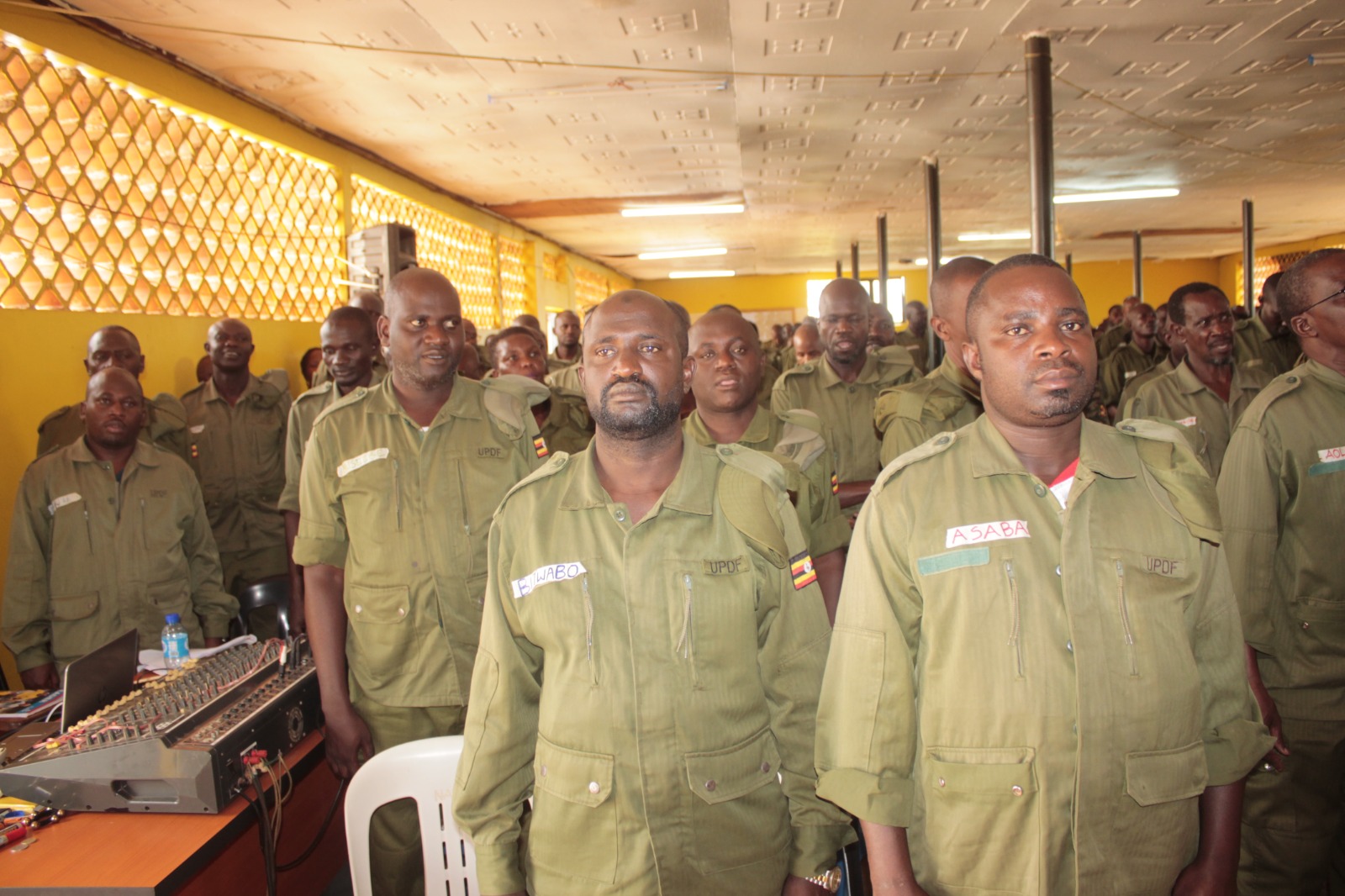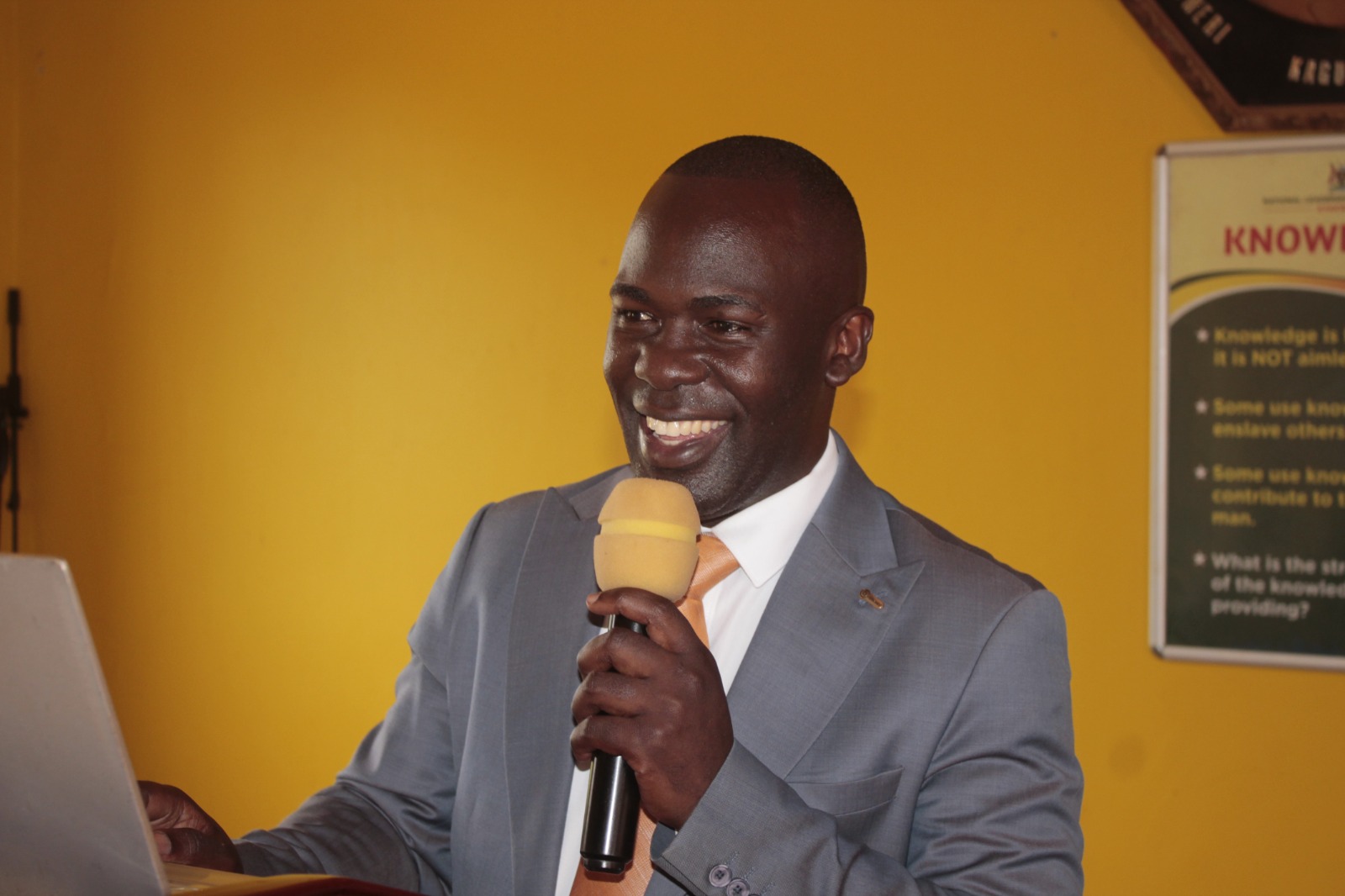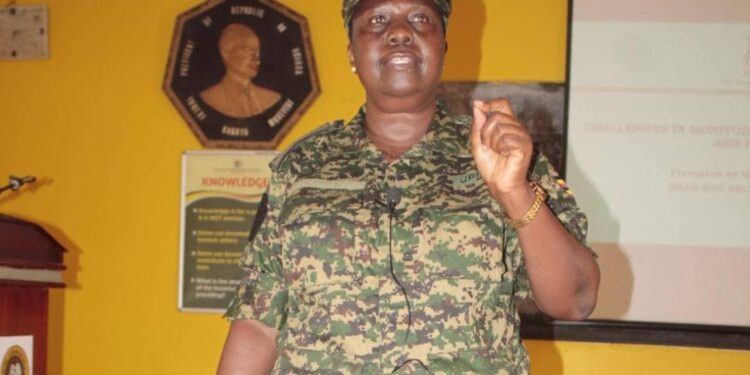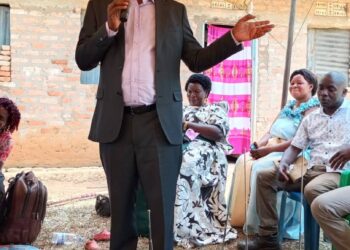The Head of the RDC Secretariat, Maj. Martha Asiimwe has informed the Assistant Resident District Commissioners (ARDCs) and Assistant Resident City Commissioners (ARCCs) that some officials who are entrusted to monitor government programs and projects have limited knowledge and awareness on the programs being implemented in their respective districts, which is a hindrance to effective service delivery.
“Many of the monitors are not even aware of their roles. For instance, under the Parish Development Model (PDM), some of the Parish Development actors were not aware of their roles, hence limiting their effectiveness,” she said.
Maj. Asiimwe made the remarks today during the ongoing two-week induction training for Assistant RDCs and RCCs at the National Leadership Institute (NALI), Kyankwanzi.
The Head of the RDC Secretariat further expounded that due to inadequate monitoring of government projects by the responsible actors, most times the implementation process is at the mercy of the contractors.
“Late submission of monitoring reports makes it difficult to obtain the overall picture on the performance of government programs and projects or cross cutting service delivery challenges,” Maj. Asiimwe asserted.
“Limited follow-up on the implementation of recommendations arising from monitoring/ evaluation of government policies, programs and projects leads to slow implementation of projects, failed/abandoned projects and white elephants. In some cases, implementers conceal information on the performance of government programs and projects.”

Maj. Asiimwe however advised the Assistant RDCs and RCCs that in order to effectively monitor government programs, they should obtain, read, and understand all the necessary source documents that guide in monitoring.
“You will need some key documents while monitoring. These documents include; the constitution of the Republic of Uganda, NRM Manifesto (2021-2026), Musevenomics, National Development Plan, PDM guidelines, procurement work plans, Public Service Standing Order, among others,” she said.
“As you have noted, there are several challenges in monitoring government policies, programs and projects, some of which have contributed to the numerous “white elephants” across the country. Additionally, a number of challenges are related to our attitudes/mindsets, including the poor reading culture. We therefore need to reflect on them and act accordingly so that the problem of persistent poor program/project implementation is addressed to achieve the intent.”
The Managing Director of the Uganda Printing and Publishing Corporation (UPPC), Prof. Sudi Nangoli who presented a paper on Monitoring and evaluation of government programs informed the Assistant RDCs and RCCs that as senior civil servants appointed by the President, they are supposed to achieve efficiency and value addition and this can only be achieved through monitoring.
“Monitoring is only realised when you know your roles and responsibilities. Article 203 clarifies that monitoring the implementation of central and local government services is your duty,” he said.
Prof. Nangoli also informed the trainees that they need to carry out Monitoring and Evaluation in order to ensure that government programs are achieving their intended goals.
“Monitoring and Evaluation helps us to identify and address challenges promptly and it provides accountability and transparency,” he said.
“In order to achieve effective monitoring, you should be goal oriented, don’t forget the individual needs of your team, be ethical and operate within budget and time,” he added.
Prof. Nangoli also urged the commissioners to work towards mobilising the masses to embrace government’s poverty alleviation programs such as Parish Development Model (PDM).
“PDM, once well handled, will transform our country. It is of paramount importance to development. Think of the solutions that can help in delivering success of the program,”Prof. Nangoli noted.
Mr. Habib Sseruwagi, a member of the Equal Opportunities Commission told Assistant RDCs and RCCs that the role of the commission is to assist individual persons and groups to understand their right to equal opportunities and their responsibilities as well as to facilitate redress to discrimination and marginalisation.
“The commission commits to fostering a society in which all individuals are equal and are treated with respect and dignity,” Mr. Sseruwagi said.
He explained that marginalisation and discrimination result in underdevelopment and injustice in the country.

“Many governments have collapsed because people feel there’s a discrepancy in equal opportunities,” Mr. Sseruwagi said.
“The Equal Opportunities Commission has been key in sensitising the masses on how they can take part in developing the country,” he added.
Mr. Sseruwagi further called upon the Assistant RDCs and RCCs to work with the commission to ensure that they promote equity in Uganda.
“We should complement each other so that our people can benefit from government programs.”
Do you have a story in your community or an opinion to share with us: Email us at editorial@watchdoguganda.com













